It doesn’t take a botanist to know that happy green plants are an instant visual pick-me-up. But these five mood-boosting plants—all of which are scientifically proven to improve your day—take self-care one step further. Add one (or all) to your home this season for an all-natural antidepressant that doubles as decor.
1. Lavender
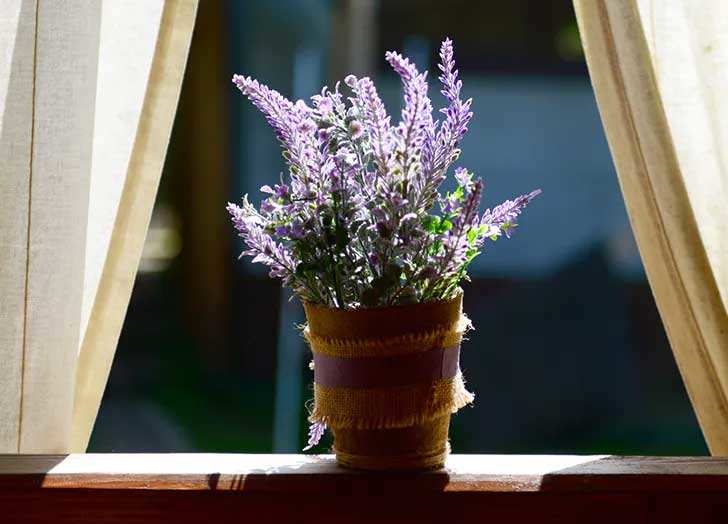
For thousands of years, this pretty, flowering herb has been used medicinally to calm nerves, relieve headaches, ease labor pains, prevent insomnia, and aid in depression. (Its soothing scent is still a mainstay in aromatherapy treatments.) While countless scientific studies have vouched for its effectiveness, a particularly illuminating 2009 study discovered that the scent of lavender had tangible effects on lowering pulse rates on nursing students in stressful situations.
2. Aloe
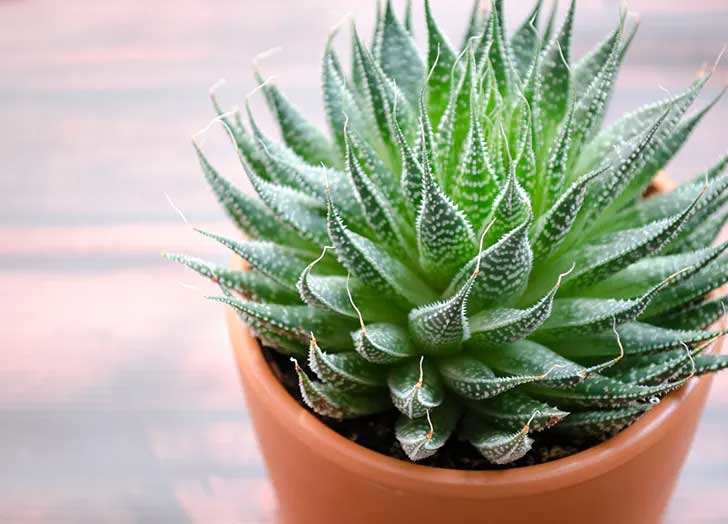
Referred to as “the plant of immortality” by the Egyptians, this beloved green was traditionally hung over doorways to ward off evil spirits. From a holistic standpoint, it’s thought to bring positive energy to the home. And from a scientific one, it both purifies the air of common carcinogens and emits oxygen at nighttime, helping us to sleep better…and be less cranky in the morning. (It was also found to improve memory and reduce depression in mice!)
3. English Ivy
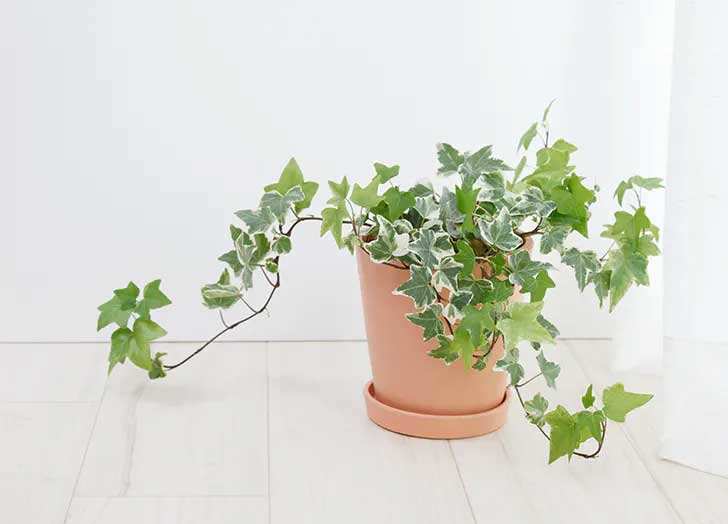
Fun fact: This romantic, creeping vine is an insanely effective air purifier. (It was dubbed by NASA scientists as the number one best air-filtering houseplant.) These guys are especially gifted at sucking up carcinogens (such as smog or secondhand smoke), and making a more pure, breathable environment indoors. Bonus points: They’re super easy to care for and don’t require much water or light to thrive.
4. Basil
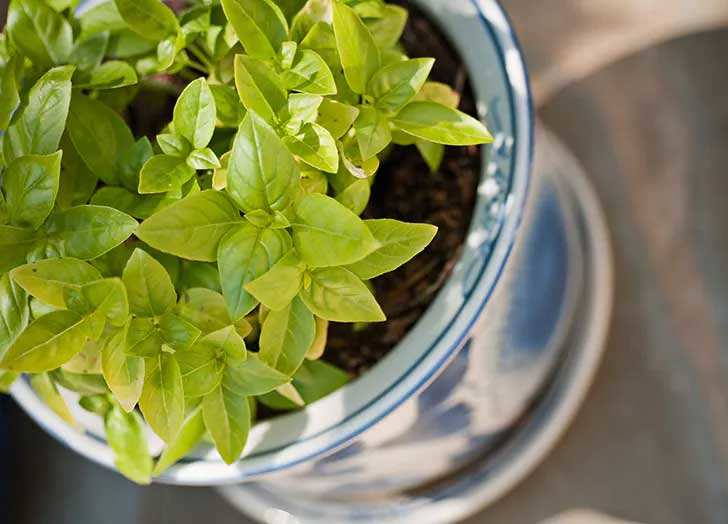
In addition to its lovely silken leaves and delicious scent, everybody’s favorite fresh herb also contains high amounts of an organic compound called linalool (which is commonly used in aromatherapy). A team of Japanese scientists famously conducted a lab rat study that found that exposure to linalool reduces the activity of hundreds of genes that typically go into overdrive during stressful situations. So stop and smell the basil, y’all.
5. Peace Lily
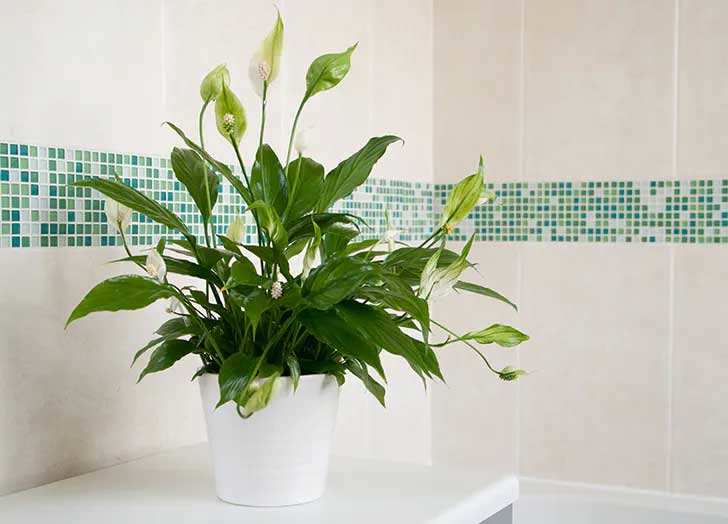
With its striking, sculptural white blooms, this plant is equal parts beauty and function. Peace lilies are known for effectively removing mold spores in the air and also neutralizing toxic gases like carbon monoxide and formaldehyde. Essentially, they’re organic air purifiers that can make you even more comfortable in your own home.
Important Notice: This article was originally published at www.purewow.com by Grace Beuley Hunt where all credits are due.
Disclaimer
The watching, interacting, and participation of any kind with anything on this page does not constitute or initiate a doctor-patient relationship with Dr. Farrah®. None of the statements here have been evaluated by the Food and Drug Administration (FDA). The products of Dr. Farrah® are not intended to diagnose, treat, cure, or prevent any disease. The information being provided should only be considered for education and entertainment purposes only. If you feel that anything you see or hear may be of value to you on this page or on any other medium of any kind associated with, showing, or quoting anything relating to Dr. Farrah® in any way at any time, you are encouraged to and agree to consult with a licensed healthcare professional in your area to discuss it. If you feel that you’re having a healthcare emergency, seek medical attention immediately. The views expressed here are simply either the views and opinions of Dr. Farrah® or others appearing and are protected under the first amendment.
Dr. Farrah® is a highly experienced Licensed Medical Doctor certified in evidence-based clinical nutrition, not some enthusiast, formulator, or medium promoting the wild and unrestrained use of nutrition products for health issues without clinical experience and scientific evidence of therapeutic benefit. Dr. Farrah® has personally and keenly studied everything she recommends, and more importantly, she’s closely observed the reactions and results in a clinical setting countless times over the course of her career involving the treatment of over 150,000 patients.
Dr. Farrah® promotes evidence-based natural approaches to health, which means integrating her individual scientific and clinical expertise with the best available external clinical evidence from systematic research. By individual clinical expertise, I refer to the proficiency and judgment that individual clinicians acquire through clinical experience and clinical practice.
Dr. Farrah® does not make any representation or warranties with respect to the accuracy, applicability, fitness, or completeness of any multimedia content provided. Dr. Farrah® does not warrant the performance, effectiveness, or applicability of any sites listed, linked, or referenced to, in, or by any multimedia content.
To be clear, the multimedia content is not intended to be a substitute for professional medical advice, diagnosis, or treatment. Always seek the advice of your physician or other qualified health providers with any questions you may have regarding a medical condition. Never disregard professional medical advice or delay in seeking it because of something you have read or seen in any website, video, image, or media of any kind. Dr. Farrah® hereby disclaims any and all liability to any party for any direct, indirect, implied, punitive, special, incidental, or other consequential damages arising directly or indirectly from any use of the content, which is provided as is, and without warranties.








